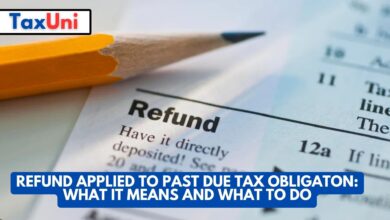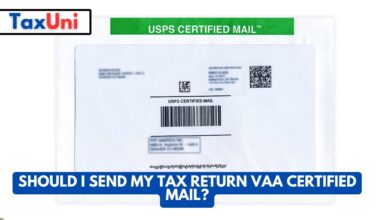Maine Tax Credits and Deductions
This article provides a detailed overview of the most significant tax credits and deductions available in Maine, offering insights into how you can take full advantage of these financial opportunities.

Maine offers a variety of tax credits and deductions designed to reduce the financial burden on its residents and businesses, providing incentives that help promote economic stability and growth. These tax benefits are aimed at encouraging investments in property, education, renewable energy, and other key areas that contribute to the state’s overall prosperity. Whether you’re an individual taxpayer looking to offset your property taxes or a business seeking reimbursement for equipment investments, understanding the available tax credits and deductions can help you maximize your savings.

Maine Tax Credits
Property Tax Fairness Credit
The Property Tax Fairness Credit is designed to provide relief to Maine residents who are burdened by property taxes or rent. This credit is particularly beneficial for low- to moderate-income households, helping to reduce the amount of tax owed based on the amount of property tax or rent paid. The credit is calculated using a formula that takes into account the taxpayer’s income and the amount of property taxes or rent they’ve paid, making it a valuable tool for reducing the financial strain of housing costs.
Earned Income Tax Credit (EITC)
Maine’s Earned Income Tax Credit (EITC) mirrors the federal EITC and is aimed at supporting low- to moderate-income working individuals and families. This refundable credit is designed to reduce the amount of state income tax owed and can even result in a refund if the credit exceeds the tax liability. The EITC is particularly important for working families with children, providing much-needed financial relief and incentivizing continued employment.
Educational Opportunity Tax Credit
The Educational Opportunity Tax Credit is a unique initiative in Maine that encourages residents to pursue higher education and remain in the state after graduation. This credit helps offset the cost of student loan payments for those who have earned an associate’s, bachelor’s, or graduate degree from an accredited Maine college or university. The credit amount is tied to the degree earned and the loan repayment plan, making it an essential tool for reducing the financial burden of higher education and supporting the state’s workforce development goals.
Business Equipment Tax Reimbursement (BETR)
The Business Equipment Tax Reimbursement (BETR) program is designed to incentivize business investment in Maine by reimbursing property taxes paid on eligible business equipment. This credit applies to new and newly acquired equipment that is used in the production of goods and services, helping businesses manage their property tax costs and encouraging further investment in the state’s economy. The BETR program is particularly beneficial for manufacturing and other capital-intensive industries.
Research Expense Tax Credit
Maine’s Research Expense Tax Credit encourages businesses to invest in research and development (R&D) activities within the state. This credit is based on a percentage of the federal research credit and is aimed at fostering innovation and growth in Maine’s economy. Businesses that increase their spending on R&D can significantly reduce their state tax liability, making this credit a powerful incentive for companies engaged in developing new products, services, or technologies.
Solar and Wind Energy Investment Tax Credit
The Solar and Wind Energy Investment Tax Credit supports Maine’s commitment to renewable energy by providing a credit for individuals and businesses that invest in solar or wind energy systems. This credit helps offset the cost of installing renewable energy systems, promoting environmental sustainability and reducing reliance on fossil fuels. By taking advantage of this credit, Maine residents and businesses can contribute to the state’s renewable energy goals while lowering their energy costs.

Maine Tax Deductions
Maine Standard Deduction
The Maine Standard Deduction is available to taxpayers who do not itemize their deductions on their state tax return. The amount of the standard deduction varies based on filing status and is adjusted annually for inflation. This deduction simplifies the tax filing process and provides a straightforward way for taxpayers to reduce their taxable income.
Itemized Deductions
For those with significant qualifying expenses, itemized deductions offer an opportunity to reduce taxable income by deducting specific expenses such as mortgage interest, charitable contributions, medical expenses, and certain state and local taxes. While itemizing requires more detailed record-keeping, it can result in substantial tax savings for taxpayers with higher expenses in these categories.
Retirement Income Deduction
Maine offers a Retirement Income Deduction that allows residents to deduct a portion of their retirement income, including Social Security benefits, pensions, and distributions from retirement accounts. This deduction is subject to certain limits and is designed to provide tax relief to retirees, helping them manage their living expenses on a fixed income.
Tuition Deduction
The Tuition Deduction allows Maine taxpayers to deduct qualified tuition and fees paid to post-secondary institutions. This deduction helps reduce the taxable income of individuals or families who are paying for higher education, making it easier to afford the cost of tuition and supporting the state’s education goals.
Deduction for Contributions to Maine College Savings Program (NextGen)
Contributions to Maine’s 529 college savings plan, known as NextGen, are deductible from state income tax. This deduction encourages families to save for higher education expenses by providing immediate tax benefits, making it a valuable tool for long-term financial planning for education costs.
Medical Expense Deduction
The Medical Expense Deduction allows Maine taxpayers to deduct out-of-pocket medical and dental expenses that exceed a certain percentage of their adjusted gross income (AGI). This deduction is particularly beneficial for those with significant healthcare costs, providing much-needed tax relief in managing medical expenses.





